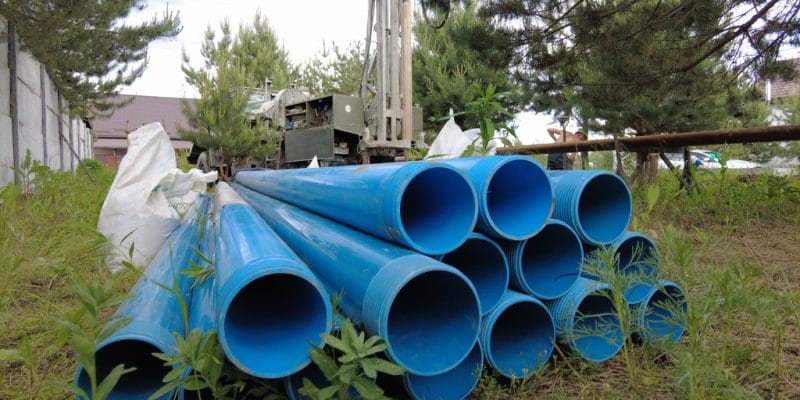In Nigeria, the Niger State government is launching a new project to lay 14,000 drinking water pipes. The Niger State Water and Sewage Corporation (NSWB) will pilot the project, which will benefit households and businesses.
In a bid to improve the supply of potable water in Niger State, Nigeria, the local government is planning to lay 14,000 potable water pipes. The Niger State Water and Sewage Corporation (NSWB), which will oversee the project, says the future pipes will be connected to its drinking water network.
According to local authorities, the new water supply project will benefit households and businesses, but also the NSWB, “which is targeting a monthly revenue of N120-150 million ($291,600-364,511) once the new pipes are connected to the network. Currently, we are below 20 million naira (48,600 euros),” says Hassan Muhammad Tsado, the NSWB’s managing director.
A project implemented in two phases
The drinking water project will also increase the efficiency of the NSWB. The United States Agency for International Development (USAID) will provide the funds for its implementation. “In its first phase, the project involves disconnecting the 2,200 pipes that currently supply drinking water to the NSWB reservoir and that have been connected to the service line, individual lines and utility lines. The other phase will involve a complete overhaul of the piping over a network of about 9km,” says Alhaji Yusuf Suleiman, Niger State Commissioner for Water Resources and Dam Development.
Read Also –
The local government is also planning to install prepaid meters in all areas with a 9km district metering area (DMA). The package of works in Niger State will also improve the rate of access to safe water in Nigeria. In the West African country, about 60 million Nigerians live without access to basic drinking water services, including the people of Niger State. The World Bank recalled this in May 2021 when it signed a $700 million loan agreement with the Nigerian government. This financing is intended for the implementation of the Sustainable Urban and Rural Water Supply, Sanitation and Hygiene (SURWASH) Programme.
Inès Magoum






